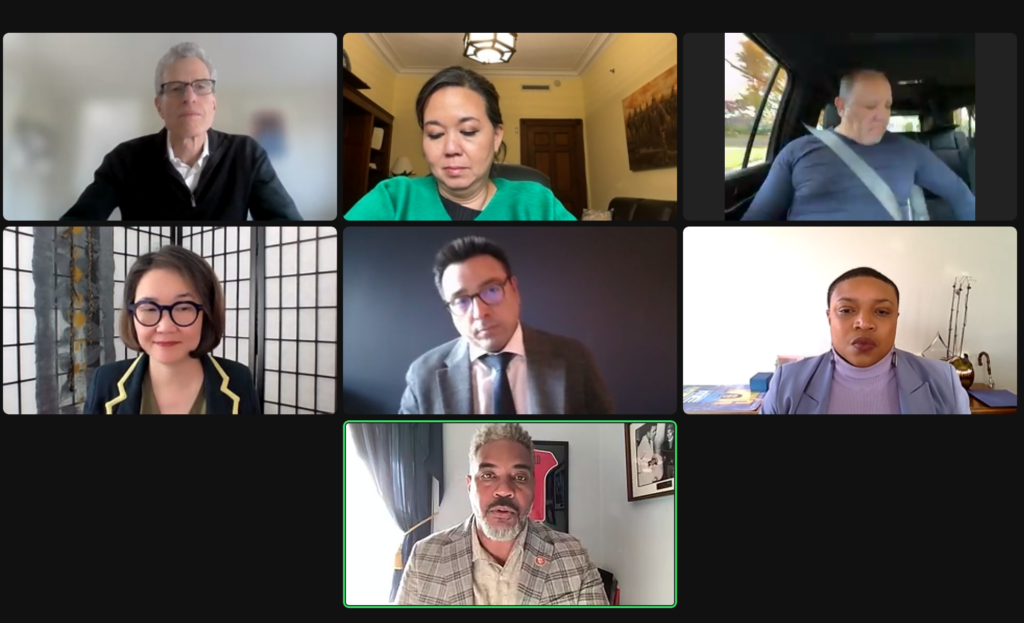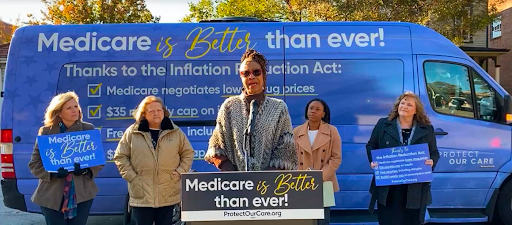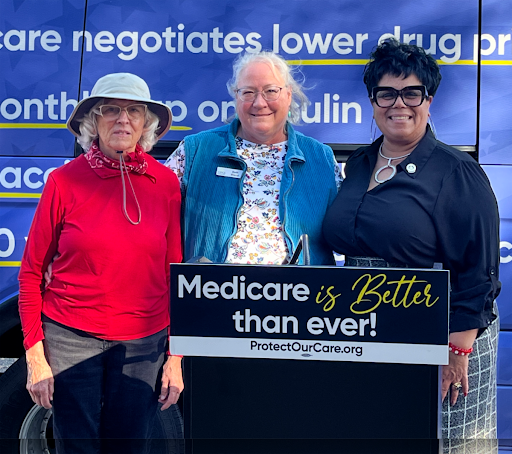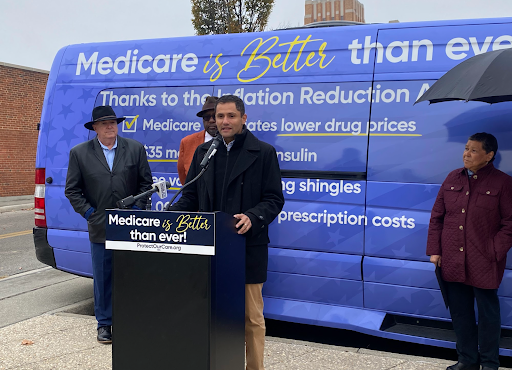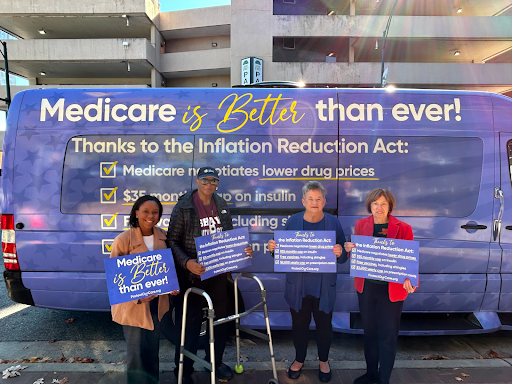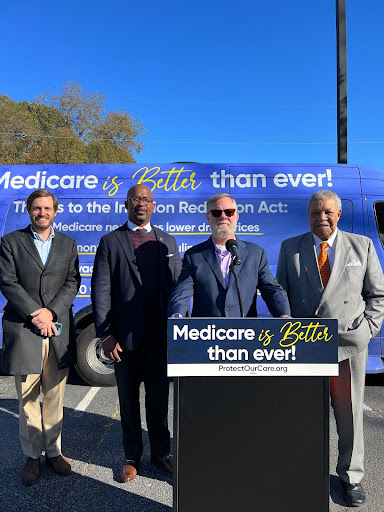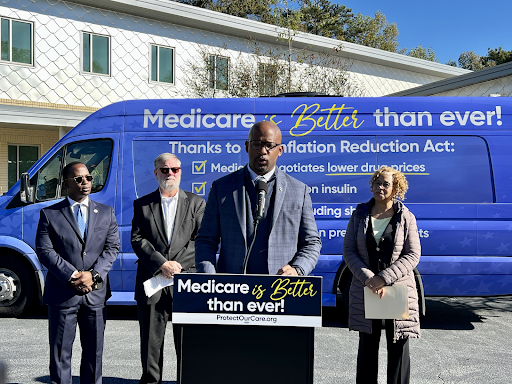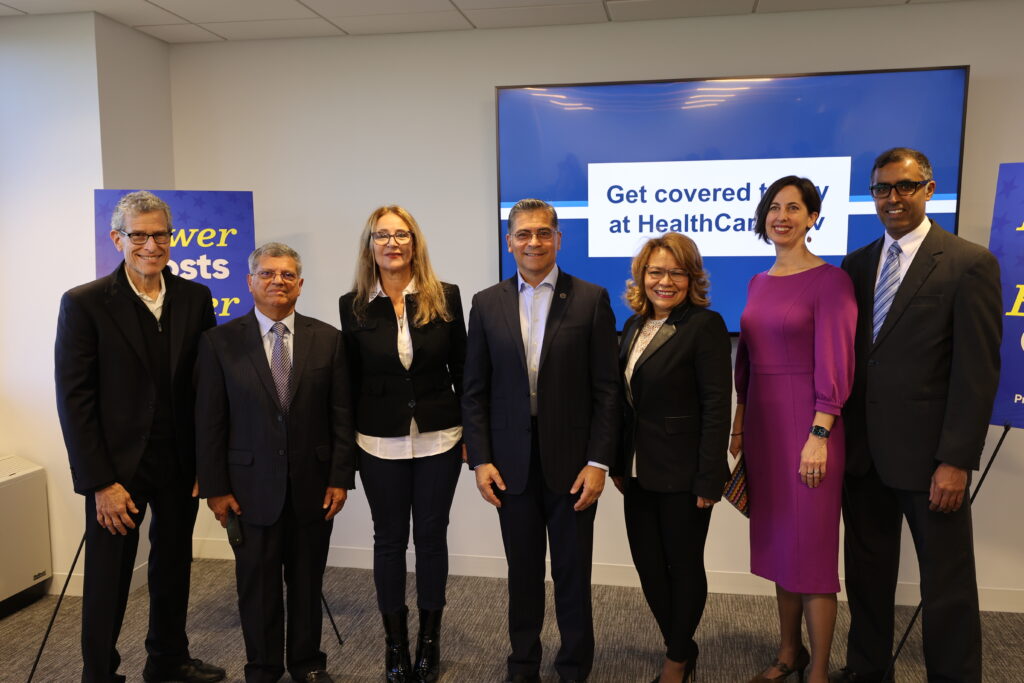
New Report Finds That If All States Achieved Results Like Those in the 10 Best States, 4.5 Million People Would Not Have Been Disenrolled from Medicaid for Paperwork Reasons

Watch the Full Event Here.
Read the Full Report Here.
Washington, DC – Today, U.S. Representative and Congressional Black Caucus Chair Steven Horsford and U.S Representative and Congressional Asian Pacific American Caucus Member Jill Tokuda joined leaders of civil rights and health equity organizations including Protect Our Care for a press call releasing a new report detailing how six months after Medicaid’s pandemic-era continuous coverage requirement ended, millions of people in America are being needlessly disenrolled from critical health care coverage because of missed paperwork, creating an avoidable civil rights and health equity disaster.
According to the report, more people and more children have lost Medicaid in just six months of unwinding than during any two-year period in American history. The report estimates that more than half of families terminated from Medicaid come from communities of color, including 2.3 million Latinos, 1.8 million African Americans, 400,000 Asian Americans, Native Hawaiians and Pacific Islanders, and more than 400,000 Native Americans, During the call, speakers called on state leaders to halt procedural disenrollments until they make major reforms that cut such disenrollments to the lowest achievable level.
The report finds that 10 million people have been disenrolled from Medicaid – more than 70% of whom were terminated for nothing more than missing paperwork. If all states performed as well as the states with the lowest rates of procedural disenrollment, two-thirds of procedural terminations would have been prevented, and 4.5 million people would not have been terminated because of missing paperwork.
Last month, the Biden administration took an important step to address this crisis by requiring states to restore Medicaid to 500,000 people – mostly children – known to have been wrongly terminated. However, state leaders must make further major reforms to ensure that only people known to be ineligible are terminated from Medicaid.
The report is co-authored by the Asian and Pacific Islander American Health Forum, the Leadership Conference on Civil and Human Rights, NAACP, the National Council of Negro Women, the National Council of Urban Indian Health, the National Urban League, the Southern Poverty Law Center Action Fund, UnidosUS, the Coalition on Human Needs, and Protect Our Care.
“We cannot afford to roll back the hard-fought progress we have made on Medicaid, which has helped to narrow racial disparities in health coverage and provide much-needed access to life-saving care in communities of color,” said U.S. Representative Steven Horsford (D-NV-04), Chair of the Congressional Black Caucus. “As a result of Medicaid “unwinding”, nearly 1.8 million Black Americans’ Medicaid coverage has been terminated in the last six months because of missing paperwork, which will only exacerbate existing disparities in access to health care for communities that we serve. The CBC joins our Tri-Caucus colleagues in calling for states to significantly cut rates of procedural terminations by renewing eligible families’ coverage and placing terminations on hold where possible, and by ensuring that beneficiaries have the necessary tools to complete their paperwork needed to determine their eligibility.”
“This report shows what we feared: since the end of the Medicaid continuous coverage requirement, we’ve seen one of the largest losses of health insurance coverage in American history,” said U.S. Representative Nanette Barragán (D-CA-44), Chair of the Congressional Hispanic Caucus. “Millions of Americans, including almost 5 million Latinos, were able to access life-saving health insurance coverage because of the continuous coverage requirement. Now that the requirement has ended, millions of people and especially communities of color, are at risk of losing their health coverage. It’s critical that state leaders take all possible steps to minimize loss of coverage, including by pausing procedural disenrollments as soon as possible. We cannot allow more low-income communities to be left behind. While the Biden Administration has provided states guidance and flexibilities to address this crisis, states must do more to protect families from wrongfully losing Medicaid coverage.”
“As an executive board member of the Congressional Asian Pacific American Caucus and the co-chair of the bipartisan Rural Health Caucus, I know that access to health care is a matter of life and death for our communities of color across the country,” said U.S. Representative Jill Tokuda (D-HI-02), Member of the Congressional Asian Pacific American Caucus. “For too long, black and brown people have been disproportionally represented when it comes both to loss of Medicaid and negative health outcomes due to lack of health access. A majority of Hawaiʻi residents are AANHPI, and I have been particularly concerned about Medicaid redeterminations for our AANHPI communities. There is an ongoing need for in-language materials, community navigators, and outreach from trusted messengers to ensure AANHPI individuals can get the health services and resources they need and in a culturally competent manner. We need to meet patients where they are at. And in doing so, we can improve health outcomes and lower healthcare costs.”
“Advocates and lawmakers alike have been sounding the alarm about Medicaid Unwinding for over a year, urging states to lead and act promptly to preserve health coverage for millions of vulnerable families and children,” said Juliet K. Choi, President and CEO of the Asian & Pacific Islander American Health Forum. “Communities of color, including Asian Americans, Native Hawaiians and Pacific Islanders, are losing life-saving care due to administrative blunders and bureaucracy. We continue to call upon the Biden-Harris administration to act, and on states to mobilize the resources necessary to make sure no family or child is left behind.”
“It is a sad reality that it took a global pandemic for our nation’s elected leadership to expand life-saving healthcare services to hardworking Americans,” said Derrick Johnson, NAACP President & CEO. “The fact of the matter is, our healthcare system has long failed our most vulnerable. This data is further proof that the procedural disenrollment process is steeped in racism. We will not stand by while millions within our community are once again left without a lifeline. The NAACP stands with UnidosUS and other leading civil rights organizations to call for an immediate pause on all procedural Medicaid disenrollments. Our state leaders must make every effort to re-enroll those who have lost coverage, leveraging available data to verify eligibility or providing readily accessible support to complete the paperwork needed to confirm eligibility.”
“The COVID-19 pandemic laid bare inequities in our healthcare system that have plagued the nation, particularly communities of color, for decades,” said Shavon Arline-Bradley, President and CEO of the National Council of Negro Women. “The termination of Medicaid benefitting our children, seniors, and qualified individuals prioritizes procedure over progress. While some states have gotten it right, we call on those states and their lawmakers that have allowed wrongful Medicaid disenrollment to not sit idly by while the constituents that elected them to office go without the critical care they need and deserve. As this comprehensive report shows, the state of health care is in crisis, and this must be reversed immediately.”
“The Medicaid redetermination is proving to be perilous for communities of color, who are disproportionately losing coverage for red tape reasons,” said Marc H. Morial, President and CEO of the National Urban League. “We support the Biden-Harris administration’s actions to enforce the law and call on states to do more to protect their people from becoming uninsured.”
“We are witnessing the deepest and steepest losses in Medicaid insurance coverage in our nation’s history,” said Eric Rodriguez, Senior Vice President, Policy and Advocacy at UnidosUS. “Many have been dropped from Medicaid due to nothing more than missing paperwork and red tape. Communities of color — including 2.3 million Latinos — are bearing the brunt of those losses, making health care unaffordable for them and deepening already serious health inequities across the country. The report finds that most of those that have lost Medicaid health insurance coverage may have still been eligible and that despite having the funds, state leaders did not invest the money needed to protect families from being unjustly dropped from the program.”
“It is unacceptable that millions of Americans are losing life-saving health care because of preventable paperwork issues,” said Leslie Dach, Founder and Chair of Protect Our Care. “Many of the states that are failing to keep people covered, like Texas, Georgia, and Florida, are the same ones that have rejected Medicaid expansion, leaving families with no place to turn for basic health care. If those states continue on the path of refusing to protect families who rely on Medicaid coverage, the consequences will be devastating, particularly for communities of color and children. Losing access to health care means people won’t get the care they need to stay healthy and thrive, often having to make difficult choices between visiting the doctor or keeping a roof over their heads. While the Biden administration has taken a number of important steps to address this crisis, these states must do more to protect families and stop inappropriately kicking people off Medicaid.”
“The nation’s Medicaid program is vital to the health and well-being of individuals and communities,” said Margaret Huang, president and CEO of the Southern Poverty Law Center and the SPLC Action Fund. “It is incredibly alarming that nearly 10 million people — including millions of children — have been terminated from this program largely because of unnecessary red tape. These ‘procedural’ terminations cause harm, especially to communities of color and children. They also deepen the current healthcare crisis in our Deep South states that have not yet expanded the program. Driving hundreds of thousands of people into not having health coverage is unacceptable and states must do more.”
“It is extremely troubling that some states are dropping huge numbers of people from their Medicaid programs because of bureaucratic hurdles, without even knowing whether they remain eligible,” said Deborah Weinstein, Executive Director of the Coalition on Human Needs. “States with records so much worse than better-performing states should be required to pause terminations while they improve their systems.”
“The report highlights the disproportionate impact Medicaid unwinding is having on Native communities,” said Francys Crevier (Algonquin), CEO of the National Council of Urban Indian Health. “Medicaid and CHIP coverage are critical to fulfilling the United States’ trust responsibility to maintain and improve Native health, as inadequate insurance coverage is a significant barrier to healthcare access for Native people. Eligible Native children and families are losing coverage for administrative reasons and the federal government has a trust obligation and must do more to protect them.”
“Medicaid pandemic coverage protections were a lifeline for people who struggled to pay all their bills, helping them to see a doctor if they were sick, or get other vitally necessary health care,” said Maya Wiley, president and CEO of The Leadership Conference on Civil and Human Rights. “Since pandemic coverage expired six months ago, we’ve seen the steepest Medicaid coverage losses in history. Make no mistake. Losing Medicaid coverage is losing that lifeline. Those losses have been disproportionately borne by the communities our coalition represents, including people of color, people with disabilities, children, older adults, low-wage workers, and so many others. This deepens and compounds unfair differences in who can and who can’t get the medical care they need. We urge state leaders to do everything in their power to keep eligible folks covered and prevent further catastrophe that is a deep problem for a country that once made great strides on civil rights.”



